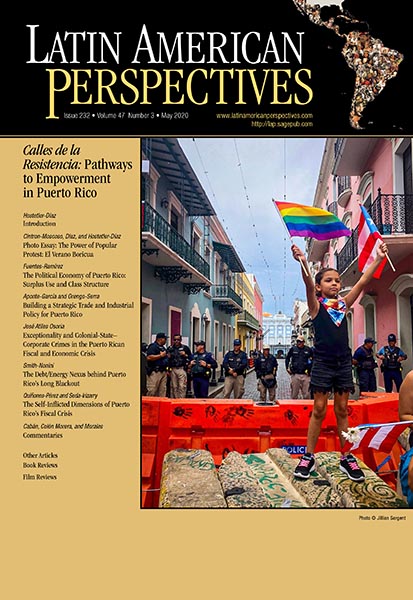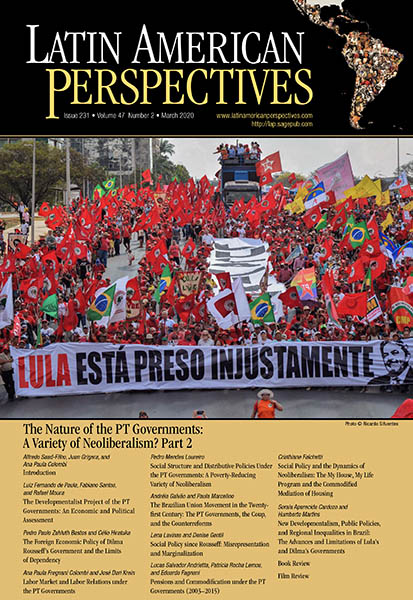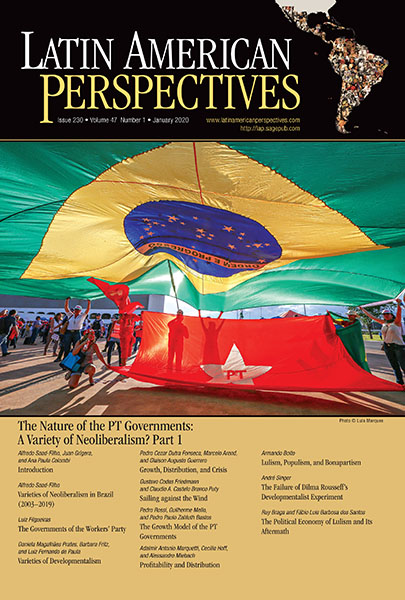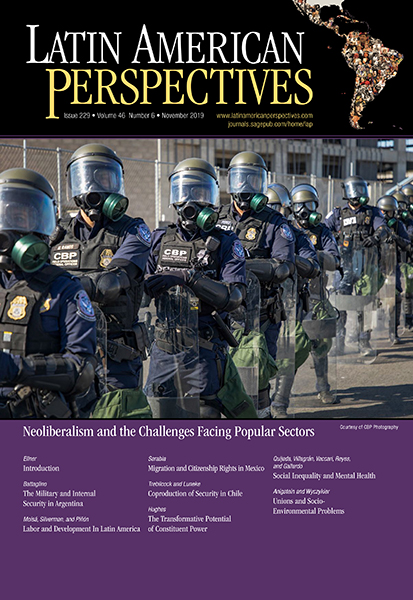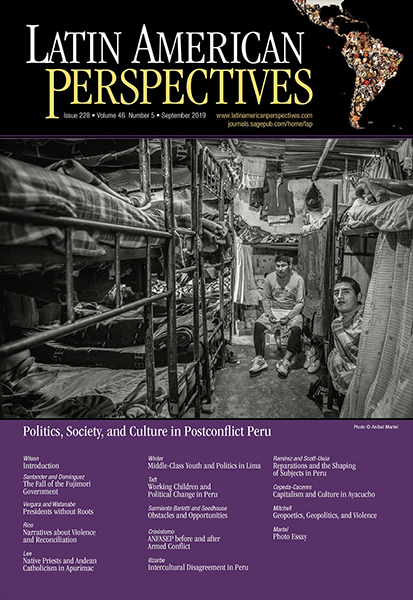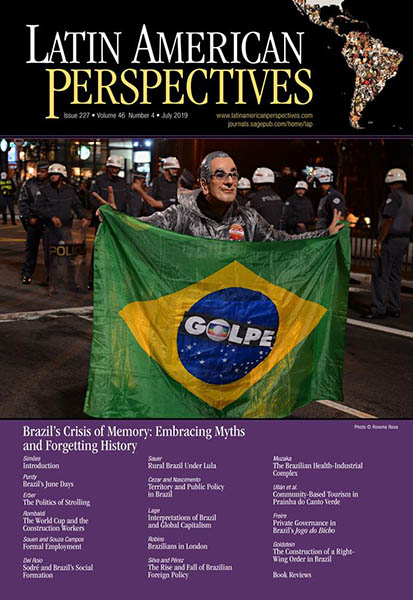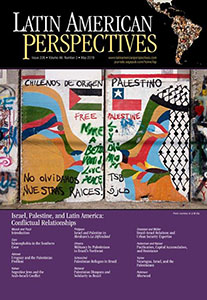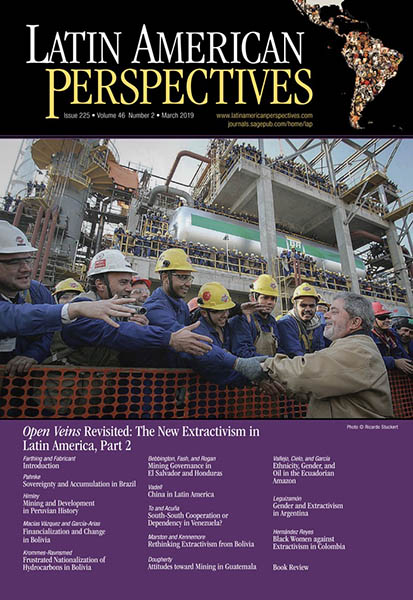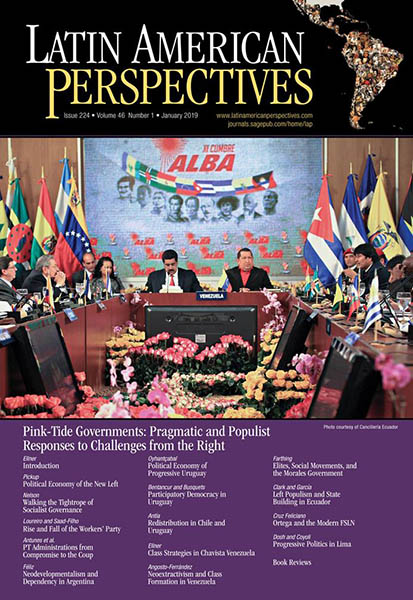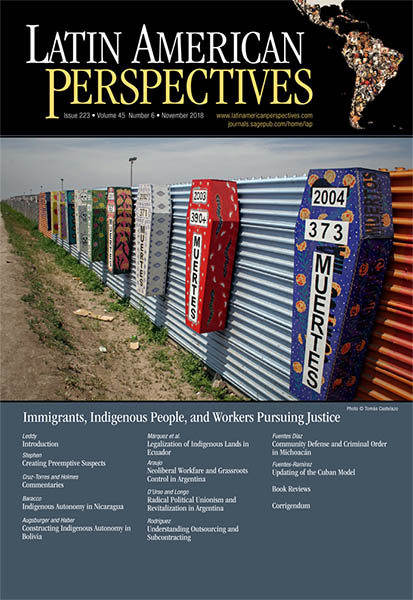Calles de la Resistencia: Pathways to Empowerment in Puerto Rico
May 2020 Issue Editor: Jean Hostetler-Díaz Calles de Resistencia: Pathways to Empowerment in Puerto Rico reveals a level of consciousness, experience, and resoluteness that is the result of an historic and protracted struggle to attain a liberated nation. This outstanding collection of well-developed economic analyses, policy proposals, political, perspectives and analyses of last summer’s remarkable mobilization, plus photo documentation, provides valuable insights about the historical and contemporary conditions that define the Puerto Rican experience. TABLE OF CONTENTS | PURCHASE THIS ISSUE


